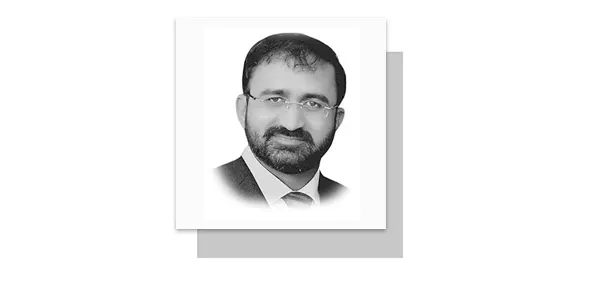THE contemporary world has witnessed a multitude of benefits as a result of technological advancements; nevertheless, these advancements have also given rise to a range of ethical concerns. According to Syed Hussain Nasr’s argument in “Religion and the Order of Nature,” the unreflective pursuit of technology in the absence of moral and spiritual guidance has the potential to result in unforeseen repercussions and ethical dilemmas. The individual advocates for the amalgamation of technology and conventional wisdom to guarantee that advancements in human society are by ethical values and uphold the intrinsic value of life. According to Nasr, the current state of detachment from nature and the denial of the sacred has given rise to a significant crisis that poses a threat to the overall well-being and spiritual progression of humanity. The author identifies three primary dimensions of this predicament: the ecological emergency, the diminishing reverence, and the deterioration of ethical principles.
First and foremost, Syed Hussain Nasr places significant emphasis on the ecological crisis as a fundamental element of the moral and spiritual predicament faced by contemporary society. The pervasive exploitation of the natural environment, propelled by an unquenchable desire for financial affluence and technological progress, has resulted in significant deterioration of the ecological system. According to Syed Hussain Nasr, humanity has neglected its intrinsic connectivity with both the natural world and the supernatural as a result of its detachment from the former. The absence of ecological awareness has led to severe ramifications, including but not limited to climate change, species extinction and environmental degradation, which have had profound effects on both the tangible and intangible aspects of existence.
Furthermore, Syed Hussain Nasr expresses deep concern regarding the erosion of holiness within contemporary society. The process of secularization in contemporary culture has resulted in the marginalization of spirituality and metaphysical contemplations, while materialism and consumerism have taken precedence. In the present setting, the value of traditional spiritual teachings, as shown by religious and mystical traditions, is disregarded or overlooked. The lack of the sacred deprives persons of a more profound sense of purpose, resulting in sensations of void, estrangement, and confusion. Nasr advocates for the reinvigoration of divine knowledge and mystical insights as a means to cultivate a heightened sense of higher purpose and ethical obligation in confronting the moral and spiritual challenges that currently afflict our era.
In conclusion, Syed Hussain Nasr emphasizes the significance of the decline in moral standards as a crucial element that contributes to the moral and spiritual crisis of the contemporary world. The erosion of ethical behaviour and civic responsibility has been attributed to the pursuit of immediate enjoyment and self-interest. The increasing prevalence of ethical relativism has resulted in the dismissal of objective moral norms, hence creating a moral void inside society. According to Nasr, it is imperative to reintroduce spiritual principles and ethical virtues, which are deeply ingrained in ancient teachings and mystical insights, to effectively confront the ethical dilemmas that mankind is currently grappling with and to construct a society that is more equitable and empathetic.
In his (Syed Hussain Nasr) work titled “Islam and the Plight of Modern Man,” Nasr offers a critical analysis of the phenomena of globalization. He highlights its inclination to foster cultural homogeneity and undermine distinctive spiritual and moral principles. The contemporary phenomenon of globalization, with its emphasis on materialism, frequently results in the marginalization of indigenous cultures and their spiritual wisdom, so contributing to the erosion of diversity and a diminished sense of belonging. As asserted by Nasr in this book, it is imperative to reiterate that individuals, who possess a genuine concern for the long-term well-being of humanity, rather than being preoccupied with immediate needs and self-centred motivations, must approach the matter of Islam and the West from a fresh perspective. Both parties must recognize that the integration of two fundamentally contrasting ideologies, namely Islam and modern secularism, is not feasible. However, it is possible to establish mutual and reciprocal respect on a human level, as well as to develop a modus vivendi that centres on the absence of aggression from either side towards the other. This entails refraining from exploiting the resources and territory of the opposing party, as well as abstaining from attempts to dismantle their cultural heritage.
However, both Islam and the Western world must acknowledge the necessity of a genuine convergence of ideas and emotions among Christians, Jews, and Muslims. These religious groups, despite their differences, possess numerous fundamental principles within their respective belief systems. The interdependence of the Western world, particularly the Christian West, together with Judaism and Islam, is characterized by deep-rooted connections that are inherently inseparable in the long term and can only be temporarily weakened at significant expense to all parties involved. The present circumstances should facilitate an environment wherein individuals with virtuous intentions from both factions can engage in a meaningful exploration of the crucial matter concerning the relationship between Islam and the Western world. This exploration should be conducted with a focus on enduring principles rather than fleeting inclinations driven by aspirations for dominance, avarice, and self-advancement.
—The writer is a PhD in Islamic thought and culture from NUML Islamabad and the author of five books and forty research publications.
Email: drumarabbasi101@gmail.com










